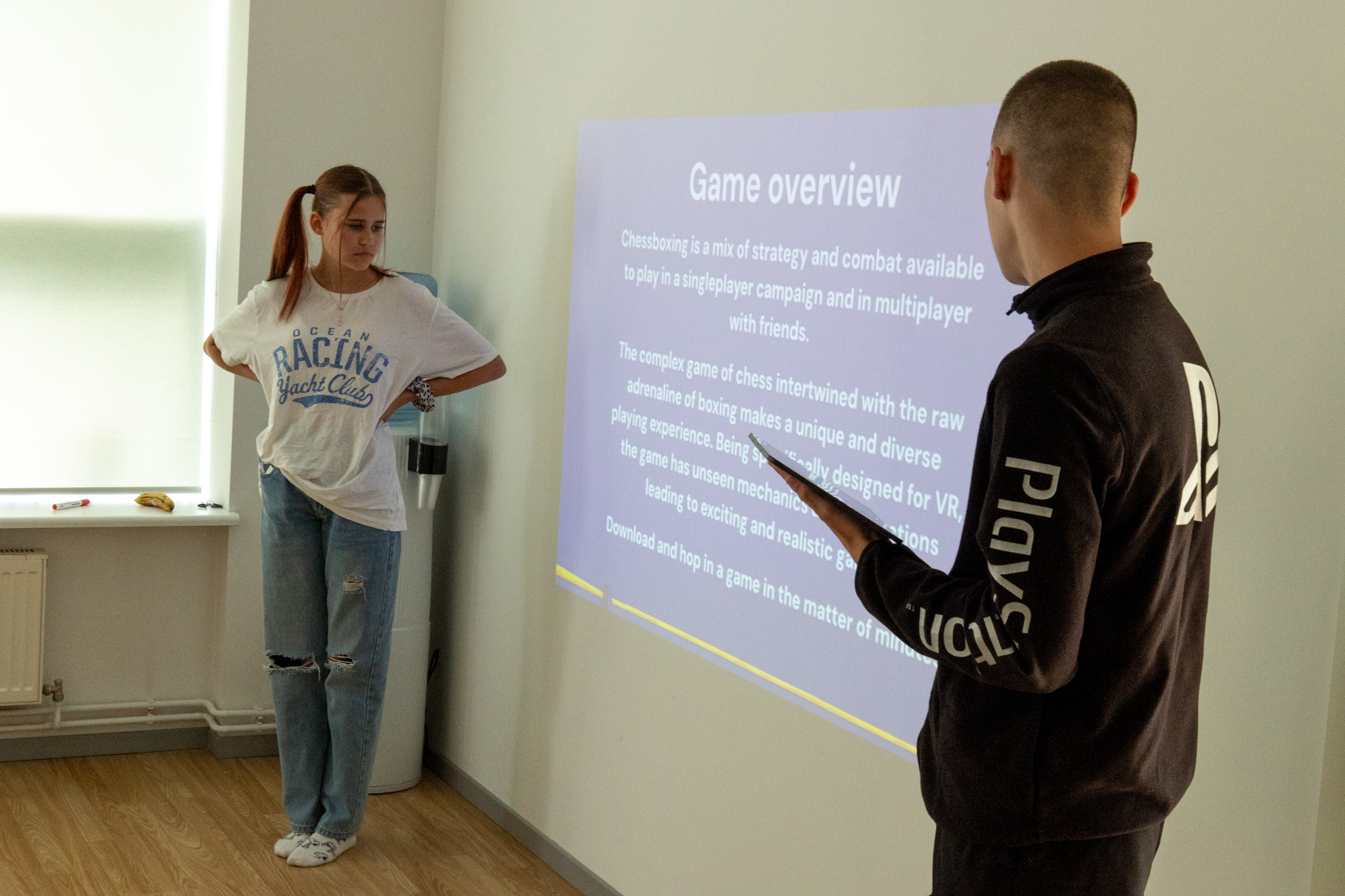In May this year, I found out about the upcoming Dateks Gaming School children’s camp “Fundamentals of Virtual Reality Game Design”. As my children are active users of technology and like to play computer games in their free time, I signed them up for the camp. An additional reason was to introduce children to virtual reality goggles and their possibilities, as they had not had the chance to try this new technology before. The varied programme of the camp, which included designing and storyboarding your own game, presenting, learning about Unity and playing board games, also appealed. But for everything in turn!
Very knowledgeable teacher
On the first day, Gustavs (15) and Elina (13) were given very well-equipped workplaces. There were 8 children in the group, each with their own powerful computer mounted high on the wall and their own VR headset (currently the latest Meta Quest 3 model). It’s nice that every child has plenty of space to use the VR headset – no need to worry about tripping and getting caught, as the cord is fixed to the ceiling.
The sessions were led by the trainer Alice, who has extensive experience in VR development, having worked for international companies including Meta. If there was a snag with a tricky piece of machinery, Alice was on it and the work could continue. I had the feeling that Alice was very good with children and that it was safe to leave my younger generation in her care.
Developing your own computer game
During the week, children in groups had to develop their own computer game idea and present it at the final event. The children split into groups of 2 and 3 and drew levels, maps, did art direction and even made game pieces. One day, a guest speaker came and talked in more detail about the development of game levels. The children tried to put it all into practice.
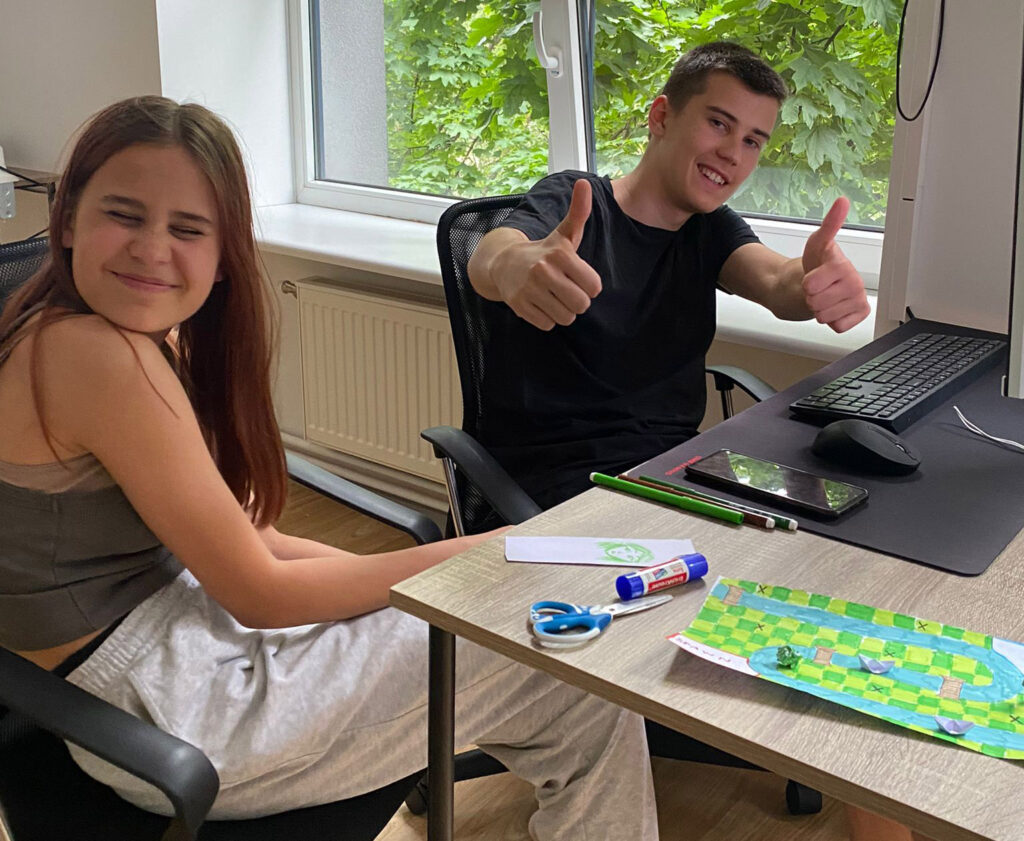
In their free time, the children played various VR games, including in a shared VR space. My kids especially enjoyed a fun game where one kid plays with VR headset and the others play with their phones and try to beat him. The camp also had a variety of board games if you get tired of VR headset. Among VR games, Gustav’s favourite was “Super Hot”, a James Bond-style game with elements of agility and combat. Elina loved the “Cook Out” cooking game.
Closing event
The camp ended with a very nice event for the children, parents and camp organisers, where everyone could appreciate what the children had done during the week through fun presentations.
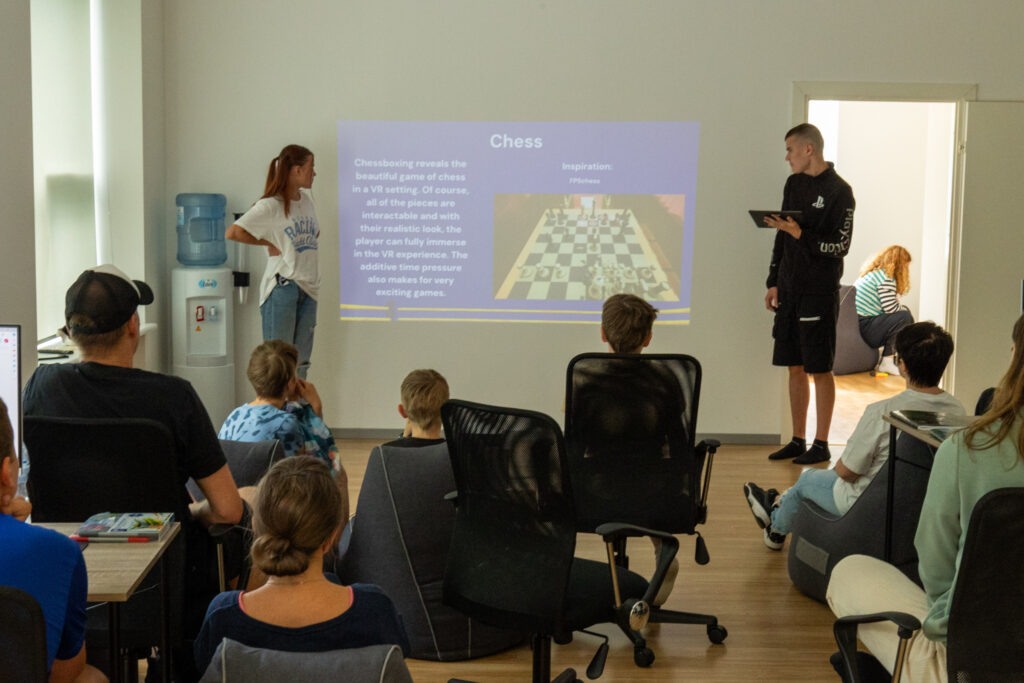
Gustavs and Elīna spent a week in a pair designing and presenting the VR game “Chessboxing” (for those who don’t know – chessboxing is a real sport). The idea of the game was to have two people alternately boxing and then playing chess in the ring. All in a virtual reality environment, of course. I thought the children’s presentation was quite engaging and you could see that there is a solid knowledge base in VR game development.
Other children also played interesting games, such as parkour, motorbike racing and detective games. The children presented their gameplay in an attractive way, showing how the game is supposed to be played with the VR controllers.
There was also pizza and parents could try out VR games. A representative of the Latvian company HyperVR Games told the audience about his experience in the VR games industry. I was surprised how long it takes to develop one game. “HyperVR Games’ most popular game is Shave and Stuff, where you have to play the role of a hairdresser.
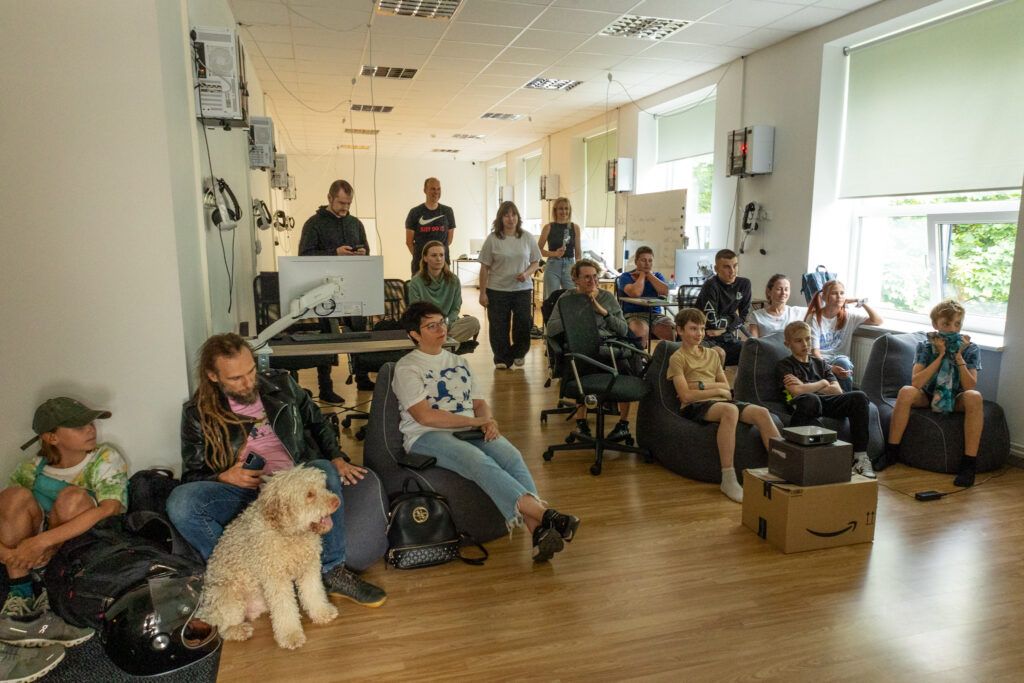
Children’s evaluation of the camp
Overall, both children had a very positive experience of the camp. We had a lot of fun, improving our presentation skills (my children chose to present their game in English) and playing VR games to our heart’s content. The children understood the complexity of the game development process, from creative direction to documentation. An introduction to Unity was given, but of course it was not possible to learn all the features of Unity in a week.
Gustavs had expected technology to advance faster and was a little disappointed by the technical limitations of VR headsets and the limited number of games in the store. But it should be understood that this technology is still in its early stages and has great potential for the future. During the camp, there were some deviations from the programme – with a group of 11-15 year olds, the younger children found it difficult to keep their attention on the lessons and the presentations were postponed until the last minute.
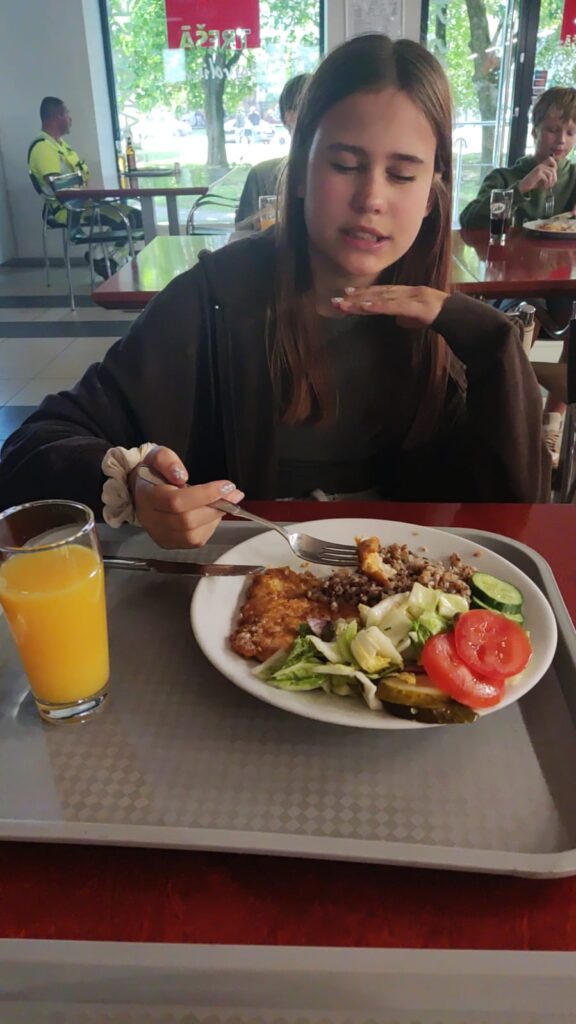

The children praised the large, bright rooms and the comfortable seating areas. The children were wearing socks, which was comfortable. Lunch was taken in a nearby café, where the lunch menu was so rich that it was usually impossible to manage. Lunch is very reasonably priced at € 6 (not included in the camp price).
With more advanced classes on game development in Unity Engine and weekly classes for kids of different ages also available at Dateks Gaming School, we will definitely look into more VR gaming classes in the autumn.

